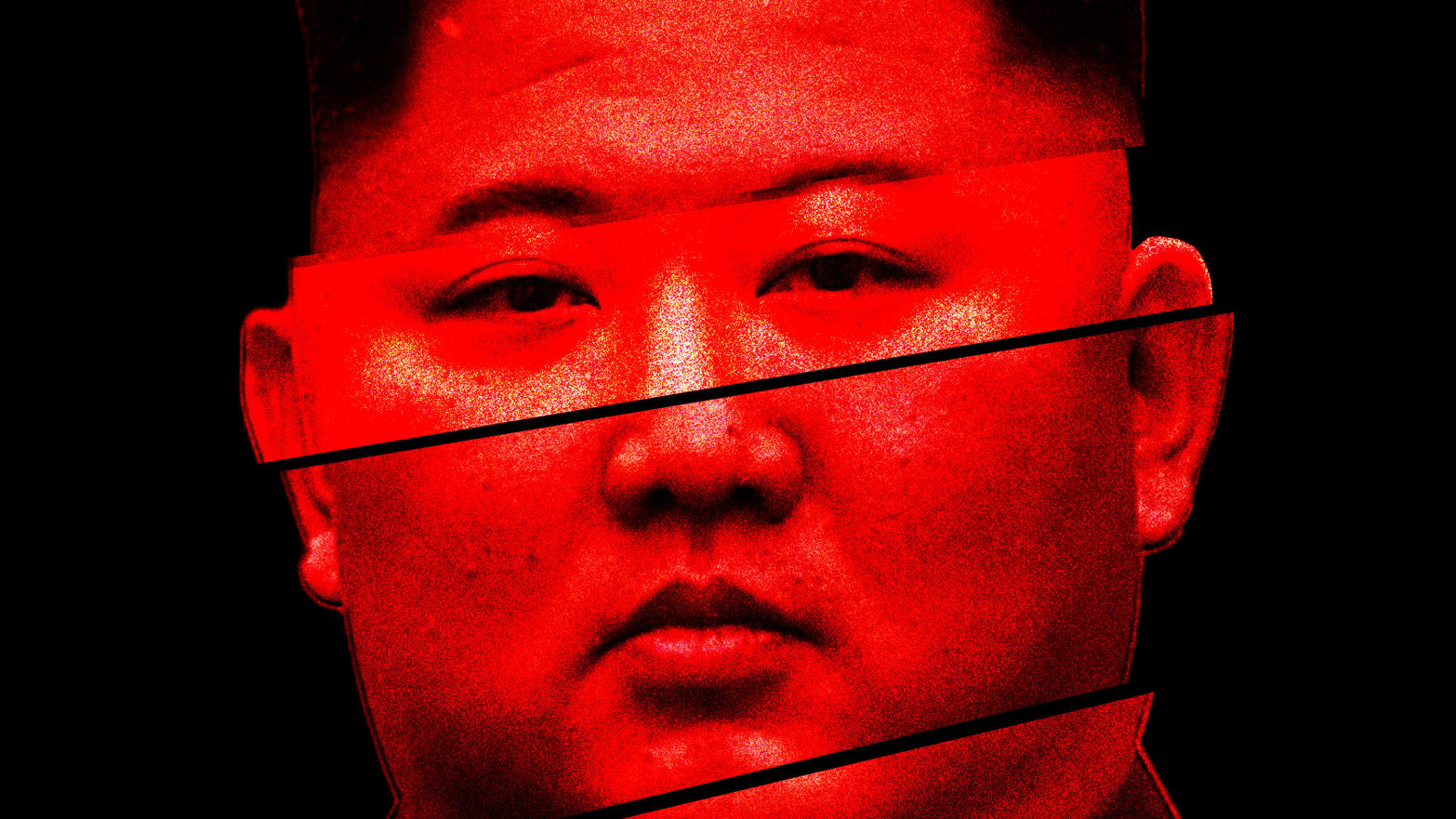SEOUL—The U.S and South Korea are about to play war games again, and this time they’re going for the jugular.
For their first joint military exercises in five years, the Americans and South Koreans will polish up what military people here call the “kill chain” in which they target the North’s missile and nuclear sites plus bases needed to supply, refuel, and rearm them.
Sources familiar with the U.S.-South Korea military alliance say the games will climax in a “decapitation” exercise where they play at invading the heart of the North Korean command structure and taking out the leader, Kim Jong Un. Although it’s only a game, he’s sure to take it personally as he did in September 2017 when he ordered the North’s sixth, and most recent, nuclear test after that year’s war games.
The U.S. will not acknowledge—formally or officially—that decapitation is on the agenda. Unofficially, though, that’s the name of the game, as explained to The Daily Beast by those familiar with the upcoming exercise as well as the exercises of five years ago.
Analysts warned the mere mention of decapitation infuriates Kim, already intimidated by the concept of the “kill chain.” Fearful of assassination, wary of discontent among his own poverty-stricken people, he’s reportedly tightened security.
One of Kim’s greatest fears is being caught out in the open in a drone attack similar to those that killed al Qaeda leader Ayman al-Zawahri at his home in Kabul on Sunday and Iran’s most feared military commander, Maj. Gen. Qasem Soleimani. Aware that he could well be the primary target in any “preemptive strike,” Kim makes himself extremely hard to find, only moving about at night, in different vehicles, accompanied by dozens of bodyguards.
“Decapitation is a mission to capture or kill a high-value target, e.g., manhunting,” David Maxwell, a retired U.S. Army Special Forces colonel who joined in the annual games during his five tours in South Korea, told The Daily Beast. “If you get the head of the military forces (which is Kim Jong Un), theoretically you gut the head of the snake.”
U.S. Defense Secretary Lloyd Austin and South Korea’s defense minister, Lee Jong-sup, agreed last weekend on holding the exercises for the first time since Donald Trump canceled them right after his summit with Kim in Singapore in June 2018 during which he professed they “fell in love.” The exercises, to begin this month, are called Ulchi Freedom Shield, named for a seventh-century general who defeated Chinese invaders.
The decision of the Americans and South Koreans to tighten their bond by joining forces on land, air, and sea fulfills the promises of South Korea’s conservative President Yoon Suk-yeol to improve strained relations. His predecessor, the left-leaning Moon Jae-in, reluctantly tolerated exercises only on computers rather than real live war games, which are seen as essential for the alliance, because he wanted to pursue reconciliation with the North. Now U.S. and Korean forces will go beyond their theoretical command post exercises, known as CPX, to field training exercises (FTX), in a show which Ankit Panda of the Carnegie Endowment said “could involve significant mobilization.” About 50,000 South Korean and nearly 20,000 U.S. troops joined in the last such games five years go.
The “kill chain,” said Panda, is the first axis of South Korea’s “three-axis defense plan” focusing “on the intelligence and strike capabilities necessary to detect and preempt North Korean missile launches.” Second is “Korea Massive Punishment and Retaliation,” KMPR, climaxing in the decapitation in which special forces snuff the target—one Kim Jong Un—in an intricately choreographed shock strike. Third is air and missile defense.
“The ‘kill chain’ concept emerged about 10 or so years ago,” said Steve Tharp, who’s made a career here first as an army officer, then as a civilian official with the U.S. command. “It involves detection and preemptive strike if an impending North Korean major attack is certain. Leadership decapitation would be part of the KMPR.”
U.S and South Korean troops will play the war games at a time of mounting tensions between the two Koreas. Kim has promised to “annihilate” South Korea in what he called “a grave warning to the conservative South Korean government and warmongers” in response to reports the South was seriously considering a “preemptive strike” against the North’s nuclear and missile facilities.
For the first time Kim mentioned Yoon by name, warning his government could be “wiped out” by the North’s “nuclear deterrent.” The U.S., by “holding large-scale joint exercises,” he said, is pushing relations “to a point that is irreversible.”
Analysts are convinced North Korea is ready for its seventh nuclear test—its first since 2017—as the Americans and South Koreans target Kim and his closest aides in another decapitation game.
“Decapitation resembles attacks on the North Korean nuclear forces in that you have to locate the target, refine that location and identify the possible munitions that could be used against it,” said Bruce Bennett, long-time Korea analyst at the RAND Corporation. “The first task could be done by a drone or reconnaissance aircraft,” he said, but Seoul also has decided “to create a brigade of special forces to help perform this function.”
This brigade, he said, “would presumably be inserted into various locations in North Korea, presumably in North Korean uniforms, trying to find evidence of Kim’s presence or the presence of other regime leaders, refine that information, and then direct an attack on the target.” The attack “could be assisted by drones” or “simply involve shining a laser on the target, simulating the giving of guidance for a laser guided bomb.”
“I personally think that the preemptive strike option against North Korea is a bad idea,” Steve Tharp told The Daily Beast, “It would immediately lead to a full-scale war—a resumption of full-scale warfare—Korean War: Part II.”
Another Korean War, he predicted, “would make the war in Ukraine pale in comparison, even if nuclear weapons weren’t used.” And “if nerve agents and nukes are used, we would probably see a greater number of deaths here than occurred during the fighting from 1950 to 1953—Korean War: Part I”
Tharp is confident the North Korean leadership doesn’t want another all-out Korean War knowing “that will lead to their demise regardless of how many casualties they inflict.” The danger, he said, “is a misjudgment of the situation that leads to unnecessary war.”
Credit the military of South Korea, the Republic of Korea, with introducing the term “kill chain” in the first place. “It’s an ROK concept of how to defend South Korea,” a spokesman at the headquarters of U.S. Forces Korea and the United Nations Command told The Daily Beast. What it means, said a South Korean military spokesman, is: “When North Korea fires missiles, we will attack the North Korean missile system.”
Neither the American nor South Korean spokesmen, however, would talk about “decapitation,” an informal term for the grand finale to the “kill chain”—and a word seen as exacerbating tensions.
“I would caution against saying publicly that ‘decapitation’ of North Korea’s leadership might be the premise of any exercise,” said Evans Revere, a retired senior U.S. diplomat who’s been focusing on North Korea issues for years. “Suggesting that elimination of Kim Jong Un and his inner circle would be the goal of the alliance would deeply anger the North Korean regime and require the strongest possible response from Pyongyang.”
North Korea “understands what the United States and the Republic of Korea are capable of doing and what they might try to do in the event of a conflict,” said Revere. “There’s no need to rub Pyongyang’s face in this harsh reality.”
The notion of rehearsing the assassination of Kim Jong Un by beheading his regime inevitably raises questions among those who would love to get rid of the man but wonder if killing him would solve all that much. Undoubtedly there would be a power struggle, possibly including his younger sister Kim Yo Jong, waiting in the wings, but then what?
Colonel Maxwell compared possible decapitation to the killing of Osama Bin Laden. “Does it work in practice or only in theory,” he asked, suggesting decapitation of the head might not accomplish the goal of destroying the enemy.
Choi Jin-wook, president of the Center for Strategic and Cultural Studies in Seoul, saw decapitation as crucial to victory. “For a dictatorship like North Korea,” he told The Daily Beast, “it is the best strategy to get rid of the dictator to win the war.”

